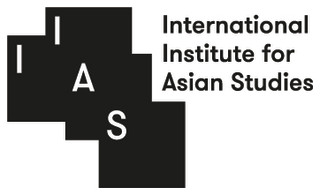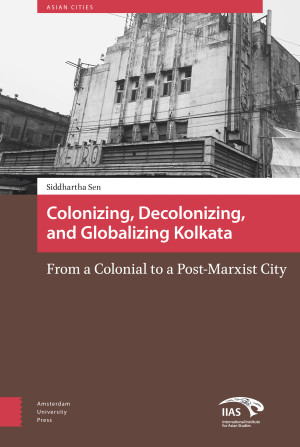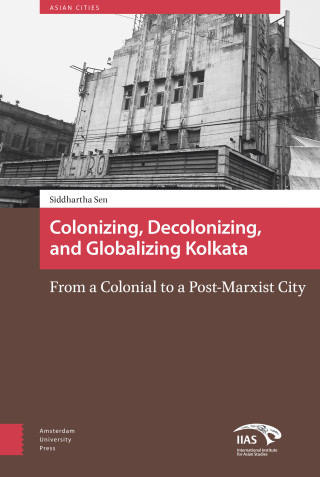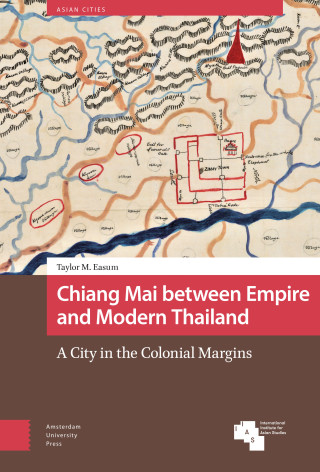

- Titel
- Colonizing, Decolonizing, and Globalizing Kolkata
- Subtitel
- From a Colonial to a Post-Marxist City
- Auteur
- Siddhartha Sen
- Prijs
- € 133,99
- ISBN
- 9789048530687
- Uitvoering
- eBook PDF (Adobe DRM)
- Aantal pagina's
- 292
- Taal
- Engels
- Publicatiedatum
- 16 - 06 - 2017
- Afmetingen
- 15.6 x 23.4 cm
- Serie
- Asian Cities
- Partner

- Discipline
- Aziëstudies
- Voorbeeld
- Download introductie
- Ook beschikbaar als
- Hardback - € 134,00
Acknowledgement
Dedication
List of Illustrations
Chapter 1: Overture
Introduction
Scope of the Book
Analytical Framework
The Concept of the State in India
Socialism, Communism and Marxism
Data Sources
Organisation of the Book
Chapter 2: Colonising Kolkata: From a City of Huts to a City of Palaces
Founding of Kolkata
Kolkata's Early Urbanism
Spatial Restructuring of Kolkata and the Emergence of Social and Political Control as the Dominant Planning Paradigm City of Palaces
Kolkata's Transformation to City of Palaces
Emergence of Architecture as a Symbol of Power
Creating a Healthier and Beautiful City for the British: Emergence of a New Paradigm for Planning
Early Municipal Administration in Kolkata 87
The Rise of the British and Demise of other European Settlements around Kolkata 88
Haora's Urbanism 93
Chapter 3: Building a Neo-Classical, Beautiful, and Clean City: The Rise and Decline of British Imperial Urbanism
Consolidation of British Power: Making Kolkata a Neo-Classical City
The Neo-Classical Architectural Influence on the Bengali Elite
Orientalist Discourse on Architecture and Kolkata
The Absence of Indo-Saracenic Style in Kolkata
Victoria Memorial Hall: Neo-Classical Revival in Kolkata
Modern Indian Architecture Movement
Limited Modernism in Kolkata
Transforming Kolkata into a Cleaner and Healthier City for the British
Shifting the Discourse to Bustees as Source of Diseas
The Calcutta Improvement Trust and E. P. Richards's Plan for Kolkata
Sir Patrick Geddes's Plan for Burra Bazaar
Racial Segregation
Municipal Administration in Kolkata and Expansion of its Boundaries
Haora's Transformation to Coolie Town
Chapter 4: Decolonising Kolkata: From an American Planning Paradigm to a Marxist City
Chandigarh: A Defining Moment in India's Search for Post-Colonial Urbanism
Revivalist Architecture and the Search for Post-Colonial Architectural Identity
Lack of a Search for Post-Colonial Architecture in Kolkata
In Search of a Post-Colonial Planning: An Overview
The Initial Acts of Decolonisation in Kolkata
Material Legacies of Colonial Planning and Kolkata's Post-Colonial Urban Problems
Political Economy of Post-Colonial Kolkata and its Urban Problems
Administrative Structure and Continuation of Colonial Legacy in the Immediate Post-Colonial Period
Western Discourse on Kolkata and Advent of Western Planning
Calcutta Metropolitan Planning Organisation (CMPO) and the Export of American Planning Paradigm to Kolkata
The Fear of Communism and Formation of KMDA
Infiltration of Grassroots Space by CPI-M and Its Allies
New Towns around Kolkata
Haora's Post-Colonial Urbanism
Chapter 5: Globalising Kolkata: A Late Bloomer
Emergence of New Market-Driven Architectural Forms in India
Why Kolkata Became a Late Bloomer
Making Kolkata Attractive to Capital: Operation Sunshine and Proposal to Remove Rickshaw Pullers
Singur and Nandigram: The Changing Priorities of the Left Front
Kolkata's Population Growth, Territorial Changes, and Administrative Structure
Liberalisation and the Changing Role of KMDA and KMC
Kolkata's Private Townships and Gated Communities: Emergence of Real Estate-Driven Development
Kolkata's Office Buildings for the Service and Financial Sectors, SEZs, and IT Parks and Complexes Shopping Malls
Emergence of New Planning Paradigms: State-Regulated Townships and Private Townships
Rajarahat
Haora's Global Urbanism
Kolkata West International City
Chapter 6: Concluding Remarks
Glossary of Terms
List of Abbreviations
Bibliography
Index
Siddhartha Sen
Colonizing, Decolonizing, and Globalizing Kolkata
From a Colonial to a Post-Marxist City
De onderstaande tekst is niet beschikbaar in het Nederlands en wordt in het Engels weergegeven.
Colonizing, Decolonizing, and Globalizing Kolkata offers an extended analysis of the architecture and urban planning of Kolkata from the earliest days of colonialism through independence and on into the twenty-first century, all set in the larger context of Indian cities’ architecture and urban planning. What Siddhartha Sen shows is the transformation of a colonial city into a Marxist one — and ongoing attempts to further transform Kolkata into a global city. Richly illustrated, the book carefully situates architecture, design, and urban planning within Kolkata’s political economy and social milieu.
Auteur
Siddhartha Sen
Siddhartha Sen is the Interim Assistant Dean of the School of Architecture and Planning and the Director of Graduate Program in City and Regional Planning at Morgan State University in Baltimore, USA. He is a recognized scholar on Indian urbanization and the nonprofit sector in India.




